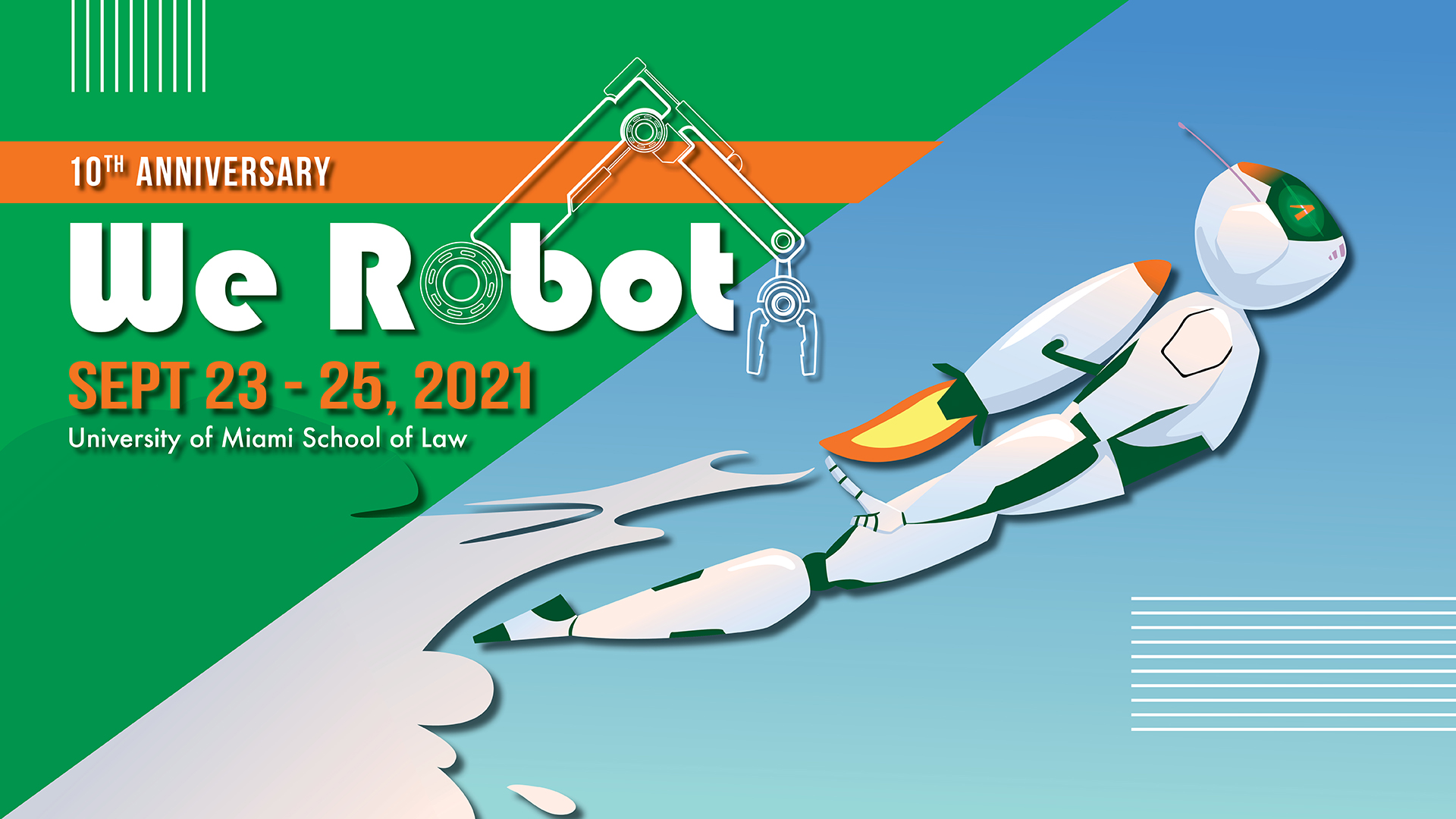We Robot 2021 Prizes
Congratulations to our Prize winners: Best Paper: Marc Canellas, Anti-Discrimination Law’s Cybernetic Black Hole — $1000 Ian R. Kerr Robotnik Memorial Award for an Emerging Scholar: Annie Brett, Robots in the Ocean — $500 plus travel support for the next We Robot Best poster: Maria P. Angel, Privacy’s Algorithmic Turn: An Intellectual History — $500 […]
